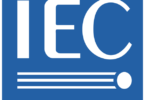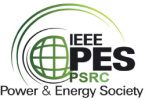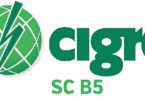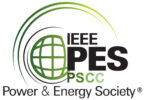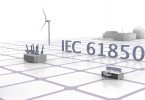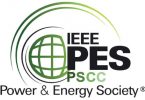by James Formea, Eaton, USA
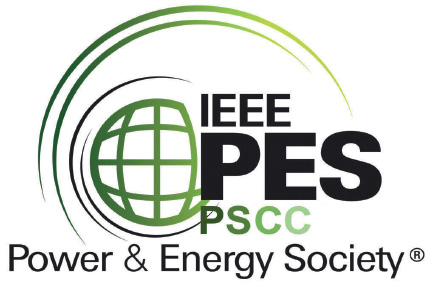
In response to the global COVID-19 pandemic situation, the IEEE PES Power System Communications and Cybersecurity Committee (PSCCC) canceled its May meeting in Nashville, TN, and moved several essential sessions to a virtual format. The PSCCC is looking forward to another joint face-to-face meeting with the Power System Relaying and Control Committee, to be held September 21-24, 2020, in Reno, NV.
Two important activities recently taken up by the committee include revisions to IEEE Std 1547.3 and IEEE Std 2030. Anthony Johnson of Southern California Edison offers the summary below as the chair of both respective working groups in the PSCCC:
IEEE Standards Coordinating Committee 21 (SCC21) for Fuel Cells, Photovoltaics, Dispersed Generation, and Energy Storage is working with the PSCCC to update two IEEE Standards, IEEE Std 1547.3, “Guide for Cybersecurity of Distributed Energy Resources Interconnected with Electric Power Systems” and IEEE Std 2030, “Guide for Smart Grid Interoperability of Energy Technology and Information Technology Operation with the Electric Power System (EPS), End-Use Applications, and Loads.
IEEE 1547.3 will work jointly with the PSCCC S Subcommittee to document and provide guidance on the Cybersecurity of Distributed Energy Resources (DERs). While IEEE Std 1547-2018 defines the interconnection and interoperability requirements for DERs connected to Electric Power System. The conformance test procedures and pass/fail criteria for 1547 are defined in 1547.1. IEEE 1547.3 was initially developed to cover interoperability and cybersecurity for the original IEEE Std 1547-2003, but with the inclusion of interoperability in IEEE Std 1547-2018, interoperability will be covered in the 1547 Application Guide (1547.2). However, IEEE Std 1547-2018 does not define requirements for cybersecurity; various standard development organizations (SDOs) like UL, ISO, and the IEC have developed standards for cybersecurity for “smart energy” systems, including DERs, but not explicitly for DERs meeting the IEEE 1547-2018 requirements. The industry is also learning from field and lab experiences; new vulnerabilities and potential threats are being discovered as more DERs are evaluated.
Therefore, IEEE Std 1547.3 is being updated to provide guidance by referring to the cybersecurity features available in the protocols specified by IEEE Std 1547-2018 (IEEE Std 1815, IEEE Std 2030.5, SunSpec Modbus), along with new cybersecurity concepts and technologies that have been developed over recent years. In the first Working Group meeting, the group established two sub workgroups to start the initial drafting of the document. These sub workgroups are discussing the justification and scoping around DER Cybersecurity. This discussion includes reviewing general cybersecurity principles, methods of engineering cybersecurity, and what cybersecurity capabilities a DER needs to be a good cyber participant.
IEEE 2030-2011 is the foundational IEEE Standard for the 2030 family of standards. Its purpose is to provide guidelines in understanding and defining smart grid interoperability of the electric power system with end-use applications and loads. Integration of energy with information and communications technology is necessary to achieve seamless operation for electric generation, delivery, and end-use benefits to permit two-way power flow with communication and control. Interconnection and intra-facing frameworks and strategies with design definitions are addressed in this guide, providing guidance in expanding the current knowledge base.
This expanded knowledge base is needed as a key element in grid architectural designs and operation to promote a more reliable and flexible EPS. This original effort consisted of over 400 people from multiple IEEE Societies working together to develop a common language in the guide to assist in developing a common understanding.
As the time came to look at renewing the standard, SCC21 again reached out to the PSCCC to participate, this time to the P Subcommittee. This revision to the standard will address new concepts that have arisen since it was last published, looking at applications and organizations that did not exist at that time. The revision will examine new concepts such as Physical Cyber Systems and Distributed Energy Resource Management Systems for inclusion into 2030.
We are always looking for new volunteers to work on our many ongoing projects!
Biography:
James Formea earned his BSEE from Marquette University and is Engineering Manager for Control Systems & Technology in the Power Systems Division of Eaton, where he leads a diverse team of engineers in the specification, implementation, and field support of system protection, communications, automation, and cybersecurity features across Eaton’s portfolio of medium voltage distribution system controls. He is a Senior Member of the IEEE and is the Secretary of the IEEE PES Power System Communications and Cybersecurity Committee. He is also a member of IEC Technical Committee 57 Working Group 15. When not working on utility solutions or industry standards, he can be found supporting public safety communications interoperability and incident management initiatives as an officer with his local fire department.



